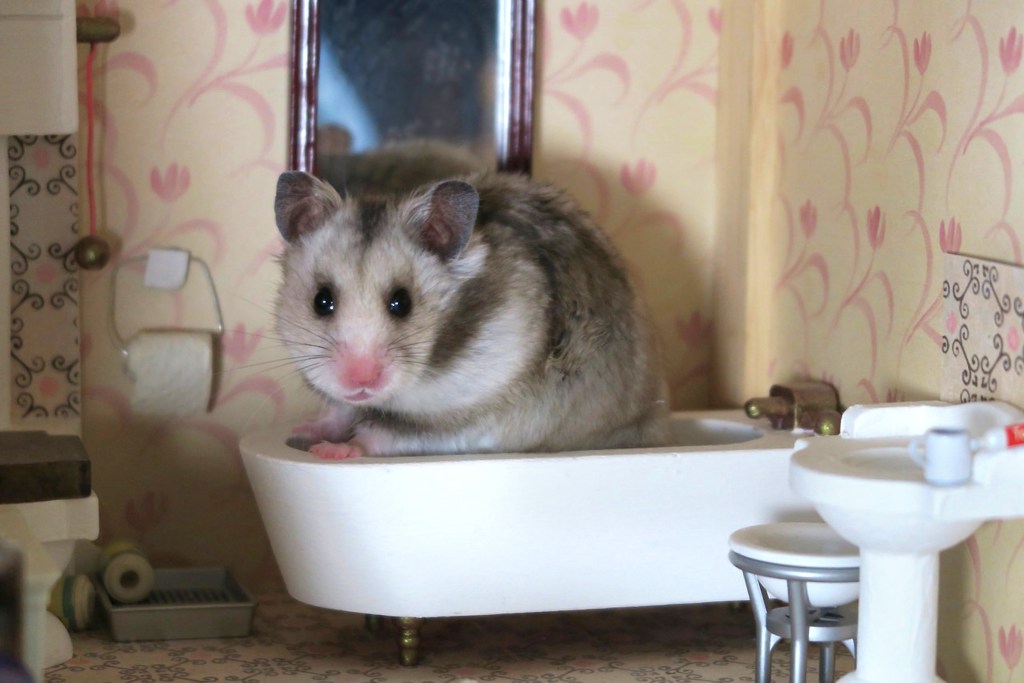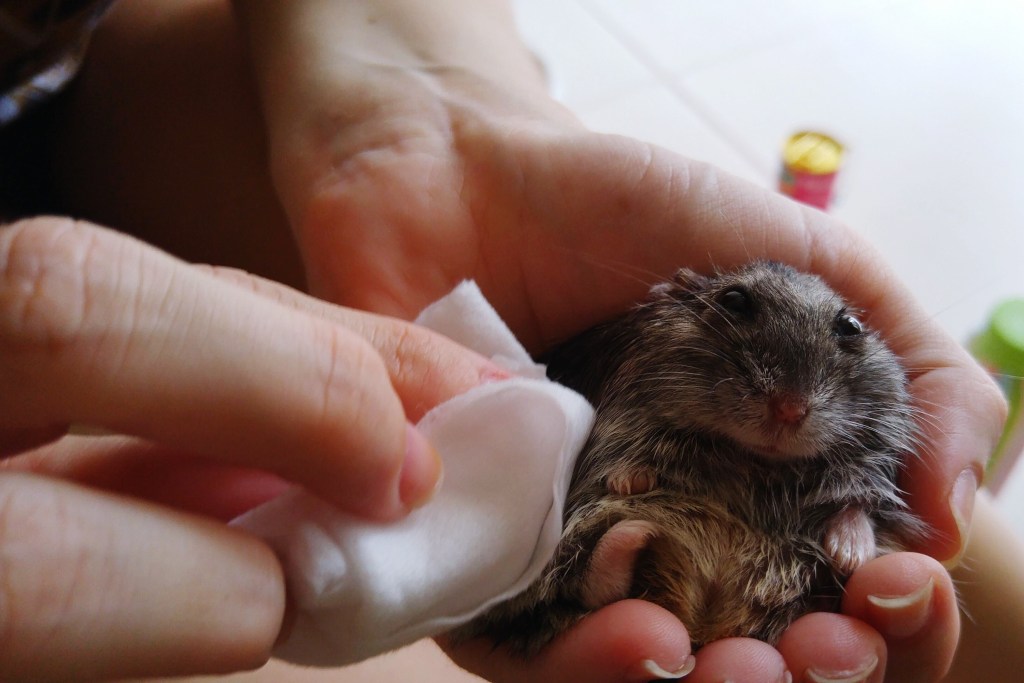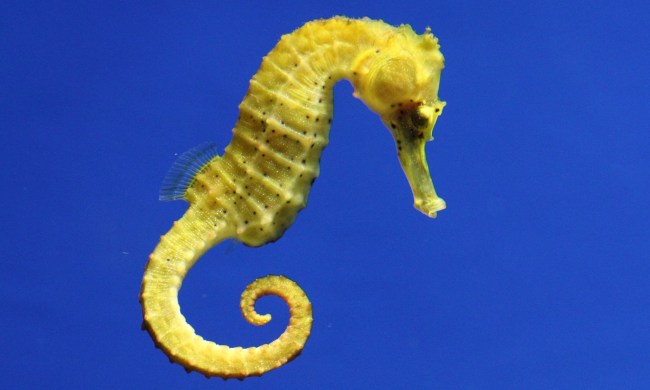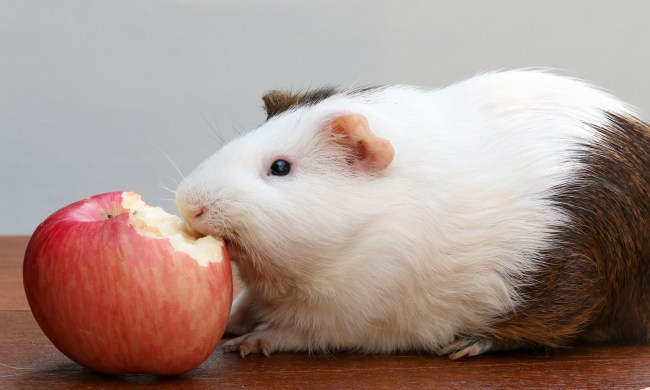The image is super cute: a little hamster taking a shower, sudsy and clean. But that doesn’t mean they’ll enjoy the process in real life. While we’re used to bathing ourselves and even our dogs, the same principles don’t necessarily apply to other critters. In fact, hamsters almost never venture into the water in their natural habitats, instead preferring to clean themselves.
As all pet owners know, that doesn’t always do the trick, and a good bathing may become necessary at times. Before you reach for the pet shampoo, first read our tips on how to bathe a hamster (and also what else you can do).

Is it safe to give a hamster a bath?
If done properly, it’s perfectly safe to bathe your hamster. Because he’s so small, you probably can’t even use the sink (unless it’s easy to put just an inch or two of water in without room for him to run around). Instead, pull out a small kitchen bowl — a salad bowl will work great — and fill it with warm but not hot water. Use pet-safe soap to gently work it through their fur and get the offending substance out. Avoid the face completely and make sure their ears, eyes, and nose don’t get splashed since this can cause them to get irritated.
You may be better served by scooping water over them rather than placing them into it. Either way, they will try to run and possibly nip. Some people choose to wear gloves, but your hamster recognizes your scent, which is calming to them (they know it’s their owner and not a stranger who has them hostage). Dry them quickly once you’ve finished and shower them with their favorite treats.
How often should hamsters bathe?
The short answer is, as little as possible. Mostly, they keep themselves fresh, and so your first option should not be a bath with water. However, a sand bath or a spot clean will work great in many circumstances. As with the liquid bath, always use pet-friendly products, including wipes or dry shampoo, both of which can be lifesavers to you and your pet (trust us, neither of you wants to jump into the water if you can help it). Typically, the only time you’ll really need to take the hamster-shower route is if they get something really sticky or toxic on them. In that scenario, don’t hesitate to go straight for the traditional bathing method.
Can you wash your hamster?
While sometimes a bath will certainly be necessary, you should mostly stick with other options. Specifically, they’ll love the opportunity for a sand bath and it’ll keep them shiny and clean. Also in your tool kit should be brushing, spot cleaning, and trimming. Depending on the situation that greets you, you’ll choose one of these first to try to get your hamster back to normal. That way, you’ll use the full-bath treatment only as a last resort and won’t overdo it.

Why does my hamster smell?
You might get a whiff of your hamster and immediately assume that a bath is in order. But hold that thought for just a second. While our go-to as humans is to jump into the shower, that’s not the case for these little guys. First off, look closely at their cage since this is usually the culprit. Hamsters are only as clean as their homes, and it’s up to us to maintain their environment. If you’ve diligently kept up with it, next look into their food. Check their digestion and bowel movements — too many treats can lead to diarrhea, which will stick to their fur more easily and might escape your eye. Lastly, some diseases, like tumors and wet tail, smell bad. These are both highly serious, and you should get your pet to the vet ASAP.
While you may end up adding a bath to your routine as a rare activity, you can also investigate why they need it in the first place. Is it smell? Appearance? Scratching? All these issues have underlying causes that will usually be solved more easily with other methods than with a shower. If you do find yourself in a bathing-worthy situation, it can’t hurt to call the vet as well, especially if the offending issue is a toxic chemical. Your animal doctor might give you additional instructions to consider.



